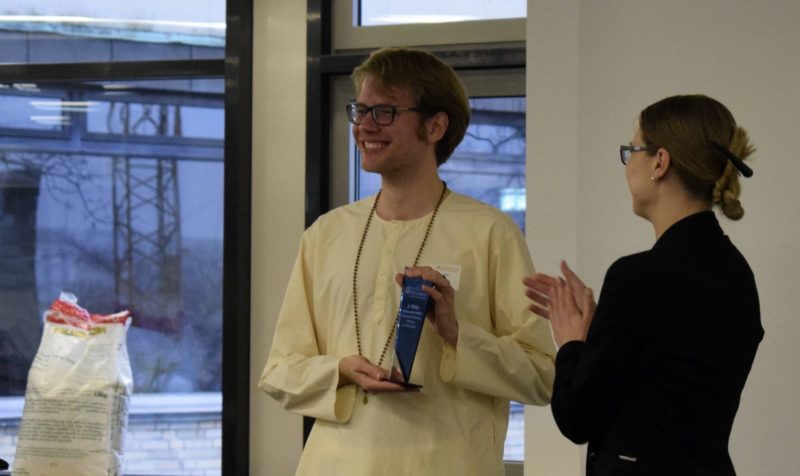I love public speaking, and I love science. A science slam combines the best of both worlds, and I am grateful to be invited to the first science slam of the Hochschule Fresenius. The event was organized as part of a conference on personnel marketing – luckily I minored in both marketing management as well as organizational development during my undergrads, and was thus invited to the panel discussion as well.
My speech was called “Was für ein (drei) Glück” – a pun difficult to translate, so I’d rather settle with the title given to this blog post for it. Unfortunately, the speeches were not recorded, and I give all of my speeches semi-impromptu. I will thus not even try to replicate it, but you shall receive a short version at least:
2500 years ago, happiness was invented. In Greece. By Sokrates, Plato, Aristippos of Athens, and also Aristotle. Basically, they differentiated between hedonia – maximizing joy and minimizing pain – and eudaimonia – maximizing purpose, virtues, and being a good boy (or girl). These two pathways are subject to research in positive psychology. However, Seligman and colleagues set both worlds up for a date and developed the PERMA model, which has been subject to my talk in China. The PERMA model describes five dimensions: Positive Emotions, Engagement, Relationships, Meaning, and Accomplishment. I wrote my Masters’s thesis about this model, developed a German version of the PERMA Profiler, and asked close to a thousand people around the globe about their well-being – mostly in Germany, the USA, and India. We found some very interesting patterns in India, and I went to live in an Ashram for a few months after my graduation to find out more. Now I am also happier. Mainly because happiness is not achievable by maximizing your gains (be it short-time joy or meaning), but minimizing your conditions for inner peace. Unfortunately, we like to ignore this simple fact in the western society. Our loss!
Happiness = cessation of mental agitation
I also had a 20kg bag of rice with me. A very prominent requisite. Some people’s eyes were glued on it: “What’s the matter with this rice?”. Guess what! Nothing, it’s a bag of rice. It’s literally written on it, with capitals. Nothing more. Some people were so focused on this bag of rice that they did not focus on my words. Guess what that says about our journey to find long-lasting fulfilment in the toys we use to make our joys (e.g., name, fame, materialism). I’ll leave the answer to you.
Ah, also I won the science slam – and had a little bit of a joy.

